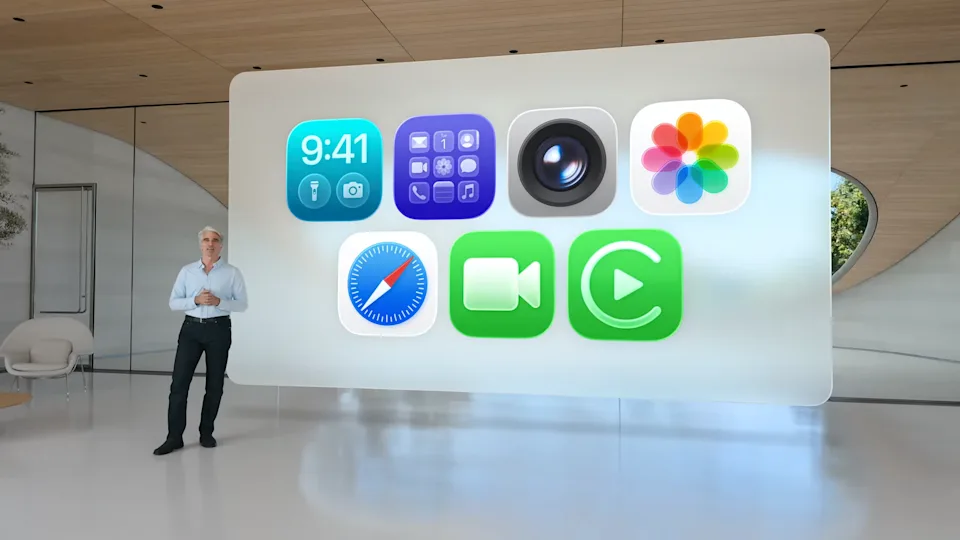Tech giant Apple Inc. has unveiled the latest iterations of its operating systems for iPhone, Mac, and iPad, introducing a significant departure from its traditional naming scheme and a comprehensive visual redesign.
The company’s newest mobile operating system will be called iOS 26, a notable leap from iOS 18, signalling a new strategy to align its software names with the year, much like its competitor Samsung.
This year-based naming convention will extend to all other Apple operating systems, including iPadOS 26 and macOS 26.
The highlight of the new operating systems is “Liquid Glass,” described by Apple as its “broadest design update ever” since iOS 7.
This innovative, translucent design theme will permeate across all devices, affecting widgets, icons, and even introducing a new “all-clear mode” alongside the existing light and dark modes.
The Liquid Glass aesthetic is inspired by visionOS, bringing a sleek, ethereal quality with shiny, glass-like edges on icons and enhanced responsiveness.

Tech pundits suggest that Apple’s shift to a year-based naming system, exemplified by the jump directly to iOS 26 (representing the system for the year ahead), aims to provide greater clarity and consistency across its platforms.
This mirrors Samsung’s move in 2020, which saw its flagship smartphones jump from the S10 to the S20.
While embracing the new numerical naming for its operating systems, Apple will, however, maintain its beloved California-themed names for macOS, with the next version set to be called “Tahoe.” This suggests a blend of tradition and a forward-looking approach in the company’s software branding.
Beyond the aesthetic and naming changes, iOS 26 is packed with new features and improvements. It brings a redesigned Photos app with separate Library and Collections tabs, a simplified Camera app UI, and new capabilities for Messages including polls and custom backgrounds.
Enhancements to privacy and accessibility are also notable, with features like Call Screening to manage unwanted calls and Hold Assist for waiting on customer service lines.
The integration of “Apple Intelligence” across the system promises smarter, more intuitive experiences, from improved Siri functionality to powerful new tools for developers
ALSO READ:Navigating New Horizons: BrandLife’s strategic expansion in East Africa












